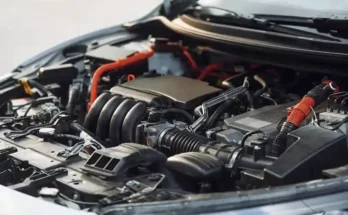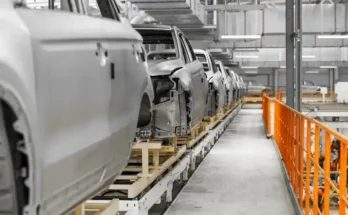Determining whether to repair or sell a damaged vehicle can be a challenging decision for car owners faced with unexpected damage. Assessing the extent of the damage, evaluating repair costs, and considering the vehicle’s market value are crucial steps in this decision-making process. Exploring insurance options, weighing the pros and cons of repairing versus selling, and factoring in safety and reliability considerations further complicate the decision. Seeking expert advice from mechanics and appraisers can provide valuable insights. Ultimately, making the final decision requires a comprehensive analysis of all these factors to ensure the best outcome for the damaged vehicle owner.
Assessing the Extent of Damage
Evaluating Visible Damage
When determining whether to repair or sell a damaged vehicle, start by assessing the visible damage. Look for dents, scratches, and other exterior issues that can affect the car’s overall appearance and value.
Assessing Structural Integrity
Beyond what meets the eye, it’s crucial to evaluate the structural integrity of the vehicle. Check for frame damage, alignment issues, or any other underlying problems that could compromise the safety and functionality of the car.
Evaluating Repair Costs
Obtaining Repair Estimates
Get repair estimates from reliable mechanics or auto body shops to understand the cost of fixing the damages. Compare these quotes with the vehicle’s value to determine if repairs are financially feasible.
Considering Hidden Costs
In addition to the upfront repair costs, factor in any hidden expenses that may arise during the repair process. Unexpected issues or additional repairs can quickly add up, influencing your decision to repair or sell the vehicle.
Considering the Vehicle’s Market Value
Researching Current Market Prices
Research the current market prices for similar vehicles in your area to gauge the resale value of your damaged car. Understanding the market demand and pricing trends can help you make an informed decision.
Factoring in Depreciation
Take depreciation into account when assessing the vehicle’s worth. Damaged cars typically depreciate faster than undamaged ones, so consider how the existing damage may impact the resale value over time.
Exploring Insurance Options
Reviewing Coverage Details
Review your insurance policy to understand what coverage you have for vehicle repairs. Determine if the damage is covered, and if so, what deductibles or limitations apply.
Understanding Deductibles and Claims Process
Before making a decision, familiarise yourself with your insurance deductibles and the claims process. Consider whether filing a claim for repairs is the most cost-effective option based on deductibles and potential rate increases.
Weighing the Pros and Cons of Repairing vs. Selling
Benefits of Repairing
Repairing a damaged vehicle can potentially save you money in the short term compared to buying a new one. It allows you to retain ownership of a familiar vehicle with sentimental value. Additionally, repairing can enhance the resale value of your car in the future.
Advantages of Selling
Selling a damaged vehicle can save you from ongoing repair costs and potential safety risks. It provides an opportunity to upgrade to a newer, more reliable vehicle with better safety features. Selling also eliminates the hassle of dealing with frequent breakdowns and repairs.
Factoring in Safety and Reliability
Impact of Repairs on Safety
When deciding whether to repair or sell a damaged vehicle, safety should be a top priority. Extensive damage or faulty repairs can compromise the safety of the vehicle and put you at risk on the road. Consider if the repairs can fully restore the vehicle’s safety standards.
Considering Long-Term Reliability
Long-term reliability is crucial for the overall cost and convenience of owning a vehicle. Repaired vehicles may experience recurring issues or decreased reliability over time. Selling a damaged vehicle and investing in a more reliable option can provide peace of mind and save you from future repair expenses.
Seeking Expert Advice
Consulting with Mechanics
Mechanics can assess the extent of damage to your vehicle and provide insights into the repair options available. Their expertise can help you understand the costs involved, potential safety concerns, and the feasibility of repairing the vehicle.
Talking to Vehicle Appraisers
Vehicle appraisers can provide an objective evaluation of your damaged vehicle’s current value and potential resale value after repairs. Their assessment can help you determine if repairing the vehicle is financially viable or if selling it would be a more practical decision.
Making the Final Decision
When weighing the pros and cons of repairing vs. selling a damaged vehicle, consider factors such as cost, safety, and long-term reliability. Seek advice from mechanics and appraisers to make an informed decision that aligns with your budget and preferences. Ultimately, choose the option that best suits your needs and ensures your safety on the road.In conclusion, weighing the various factors involved in deciding whether to repair or sell a damaged vehicle is essential to making an informed choice. By carefully considering the extent of damage, repair costs, market value, insurance options, safety, and reliability, individuals can make a decision that aligns with their financial circumstances and vehicle needs. Seeking expert guidance and taking the time to evaluate all aspects can lead to a well-thought-out decision that ultimately benefits the car owner.



